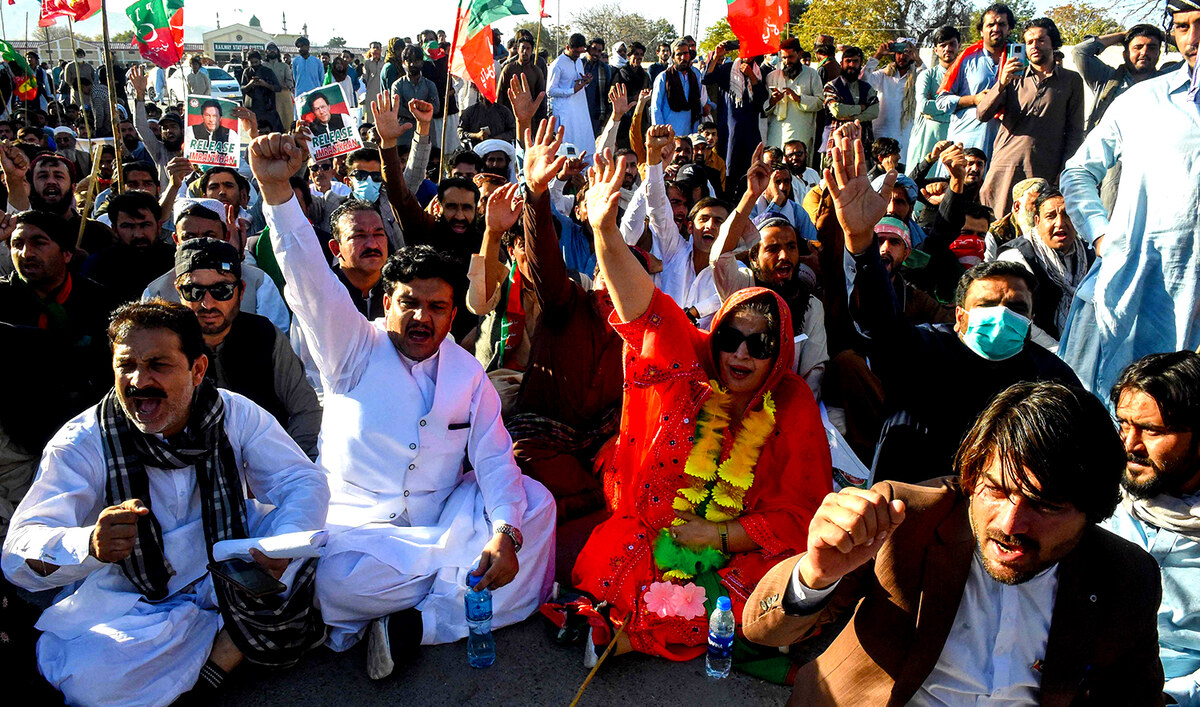KARACHI: The large white silhouette of a woman stood in sharp contrast to the black canvas. The faceless lady rested her head on her arm, the checkered keffiyeh around her neck spelling one word: resistance.
The painting is part of the latest exhibition by Kuwait-born Pakistani artist Annem Zaidi at the Sanat Gallery in Pakistan’s southern port city of Karachi. Titled “From The River To The Sea,” the series is a tribute to Palestinian women and their courage in the face of Israel’s ongoing military onslaught in Gaza.
The exhibition kicked off on Tuesday and will continue till April 25, featuring 14 paintings, all of which are white silhouettes painted on black canvases.
Ten percent of the artist’s commission will be donated to the people of Gaza through the Pakistani charity Alkhidmat Foundation, Zaidi, who is Lahore-based, told Arab News.
The traditional Palestinian keffiyeh checkered scarf has lately come to symbolize Palestinian nationalism and solidarity worldwide and occupies a central place in Zaidi’s latest collection of paintings.
“In this latest body of work, it [keffiyeh] is representing the female strength,” Zaidi said at her exhibition on Tuesday. “It is a symbol of the Palestinian female strength, their resilience, their courage.”
Out of the 33,800 Palestinians killed since Israel launched an air and ground offensive in Gaza on Oct. 7, 10,000 are women. In a statement to mark International Women’s Day last month, the Gaza Health Ministry said over 60,000 pregnant Palestinian women were suffering from malnutrition, dehydration and lack of proper health care. With acute hunger now spreading across the enclave and virtually no food available, mothers and small children are the most vulnerable.
Like millions of other people around the globe, these horrors have also hit Zaidi.
“What’s going around in Palestine, being a mother, it is extremely upsetting,” she said. “It’s really taken a toll on my health, on my mental health.”
Scheherezade Junejo, the curator of the show, described Zaidi’s art as “dedicated to the plight of an oppressed people, symbolized through the use of a piece of fabric.”
“Rather than a blatant politicization of current events, this series shows a softer, more humane side of a people powerless in the face of genocide,” Junejo said.
For Zaidi, the body language and the garments of the women in her latest series of paintings depicted confidence.
“So, they’re not like your head-covered or women who look very, very oppressed,” she explained. “Because even though they [Palestinian women] are being oppressed, at the same time, I feel we should focus more on the strength that they have shown over the years.”
Zaidi, who has exhibited her work in Vienna, London, New Delhi, and Dubai previously, pointed to one painting that she said was her favorite: the silhouette of the woman resting her head on her arm.
“It’s like she’s just reflecting about the current events and whatever is going around,” Zaidi said, “and at the same time, the painting has got so much strength in it.”


















